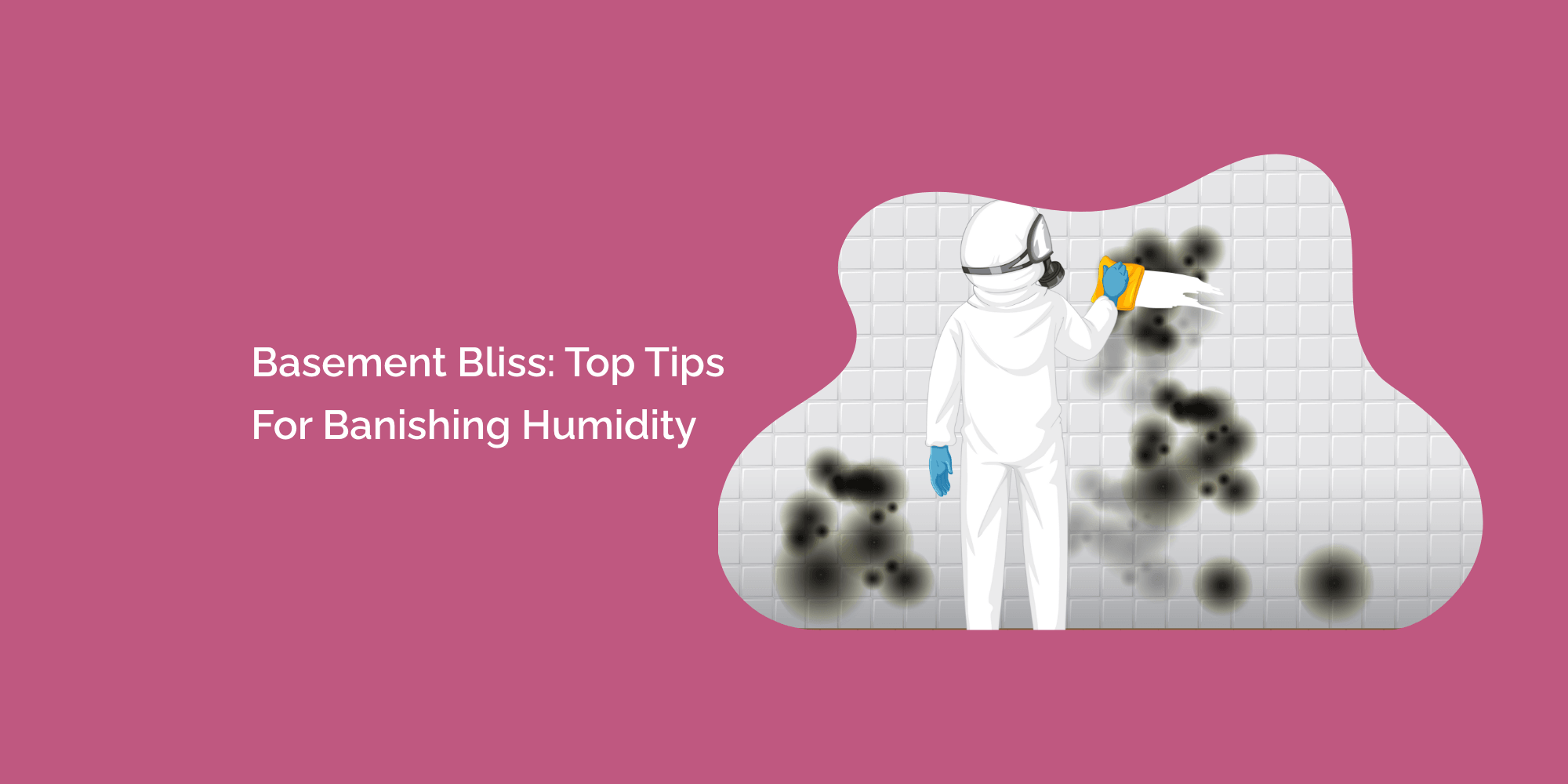Humidity can be a persistent and frustrating issue, especially in basements. Excessive moisture in your basement can lead to many problems, from musty odors and mold growth to damaged belongings and compromised structural integrity. This blog will explore the top tips for banishing humidity and creating a comfortable, dry, and blissful basement space. By implementing these strategies, you can transform your basement into a functional and enjoyable area for various activities.
Identify the Source of Humidity:
Before taking any corrective measures, it is crucial to identify the source of humidity in your basement. Familiar sources include leaky pipes, improper drainage, poor ventilation, and groundwater seepage. Inspect your basement thoroughly and address any issues accordingly. This initial step will help you prevent future problems and determine the most effective solutions.
Ensure Proper Ventilation:
Proper ventilation is essential for controlling humidity levels in your basement. Without adequate airflow, moisture can become trapped, leading to condensation and increased humidity. Here are some ventilation tips:
- Install exhaust fans: Install exhaust fans in your basement to improve air circulation and remove excess moisture. Place them near sources of water such as laundry areas, bathrooms, or kitchens if applicable
- Open windows: Whenever weather permits, open windows to allow fresh air to enter your basement. This natural ventilation method can help reduce humidity levels effectively.
- Use dehumidifiers: Consider using dehumidifiers to remove excess moisture from the air. Opt for energy-efficient models and place them strategically in your basement to cover the entire area. Regularly empty and clean the dehumidifier to maintain its efficiency.
Improve Insulation:
Inadequate insulation can contribute to humidity problems in your basement. Moisture from the outside can seep through walls, leading to increased humidity levels. By improving insulation, you can create a barrier that prevents moisture intrusion. Here are some insulation tips:
- Seal cracks and gaps: Inspect your basement walls and floors for any damages or holes that might allow moisture to enter. Use caulk or other suitable sealants to seal these openings and prevent water infiltration.
- Install vapor barriers: Consider installing vapor barriers on the interior walls of your basement. These plastic or foil sheets act as a moisture barrier and prevent water vapor from entering the space. Consult a professional to determine the most appropriate type of vapor barrier for your basement.
- Insulate pipes: Insulating your basement pipes can help prevent condensation and reduce humidity levels. Wrap pipes with insulation sleeves to keep them dry and minimize the potential for moisture buildup.
Manage Water Drainage:
Adequate water drainage is crucial for maintaining a dry basement environment. Poor drainage can result in water accumulation and increased humidity levels. Follow these tips to manage water drainage:
- Clear gutters and downspouts: Ensure your gutters and downspouts are clear of debris and effectively channel water away from your foundation. Regularly clean them to prevent clogs and potential water leaks.
- Grade the landscape: Slope the terrain away from your home's foundation to encourage water runoff. This prevents water from pooling around your basement walls and seeping into the space.
- Install a sump pump: If your basement is prone to water intrusion, consider installing a sump pump. This device helps collect and pump out excess water, preventing flooding and reducing humidity.
Certainly! Here are some frequently asked questions (FAQs) related to banishing humidity in basements:
Why is humidity a problem in basements?
Basements are often prone to high humidity levels due to their location below ground level, limited ventilation, and potential for moisture intrusion from the surrounding soil or water sources. This can lead to condensation, mold growth, musty odors, and damage to belongings.
How can I identify the source of humidity in my basement?
To identify the source of humidity, inspect your basement for signs of leaks, water stains, condensation on windows or walls, and musty odors. Familiar sources include leaky pipes, improper drainage, poor ventilation, and groundwater seepage.
Should I open windows in my basement to reduce humidity?
Opening windows can help improve ventilation and reduce humidity in the basement, especially when the outside air is drier than the indoor air. First, however, it's essential to consider the climate and outdoor humidity levels. Dehumidifiers and proper ventilation techniques may be more effective if the outdoor air is humid.
Conclusion:
A humid basement can be a breeding ground for mold, unpleasant odors, and damage to your belongings. By implementing the tips mentioned in this blog, you can banish humidity and create a blissful basement space. Remember to identify the source of humidity, ensure proper ventilation, improve insulation, manage water drainage, maintain optimal temperature, control moisture sources, and monitor humidity levels. With these strategies, you can transform your basement into a dry, comfortable, and enjoyable area for various activities. Enjoy your newfound basement bliss!








